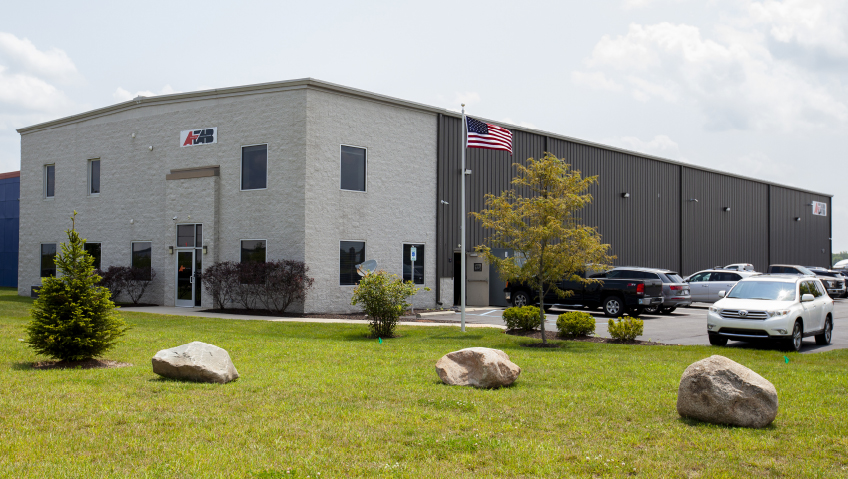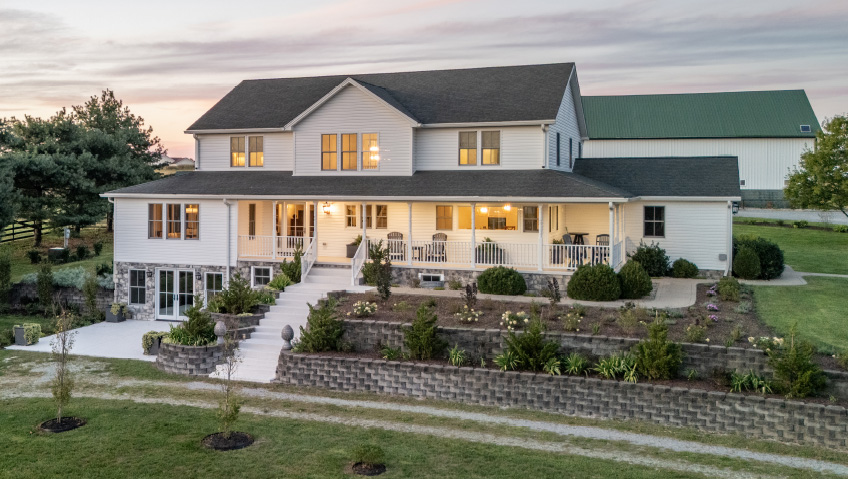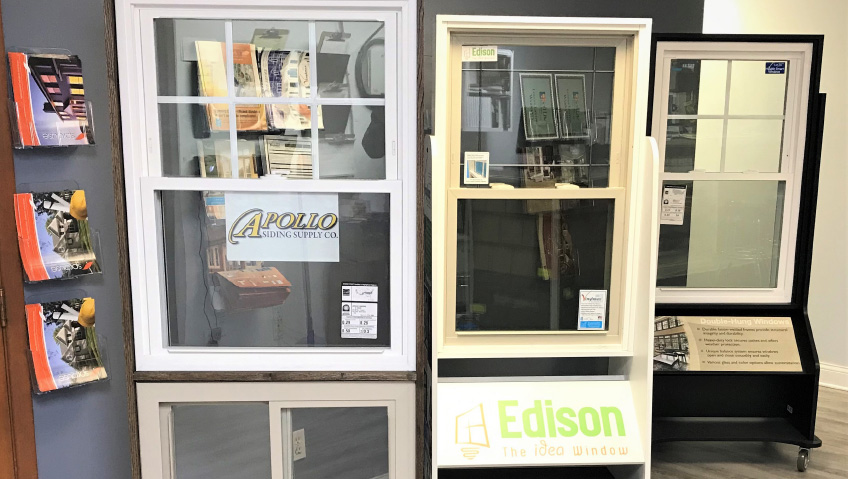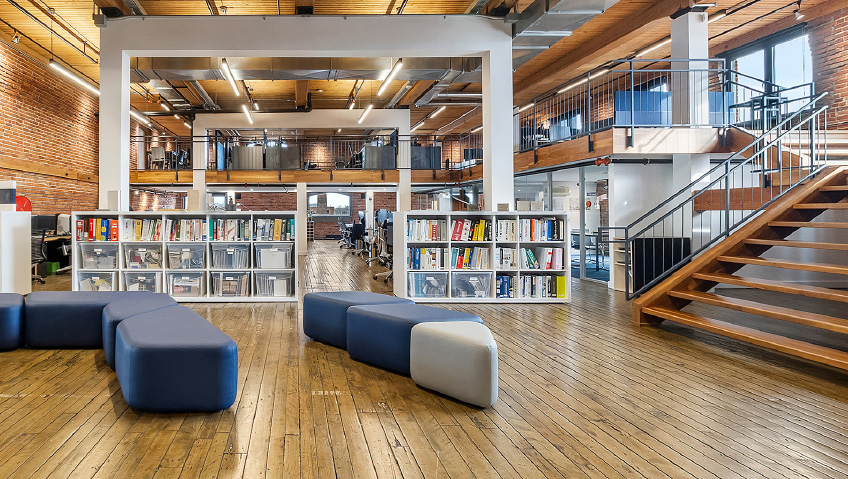Applied Fabricators (AFAB) of Greenfield, Indiana marked its 40th anniversary this year, a milestone the company achieved through hard work, advanced technology, and old-fashioned customer care.
“We have a saying: ‘Go get a beer. AFAB’s got it from here,’” says Chief Executive Officer and Owner Brandon Reeve, son of the company founders.
Founded in 1984, AFAB employs advanced machinery and robotics, but maintains a family business mentality that emphasizes client needs, according to Reeve. Having experienced strong growth in recent years, the company is now thinking about opening new branches in different states, while enhancing its core services.
“We consider ourselves architectural sheet metal fabrication, which is more light-gauge,” he explains. “We’re not structural; we’re not heavy-gauge. Having said that, we are capable of fabricating some pretty heavy-gauge materials.”
The company primarily serves three markets within the commercial construction sector: cold storage, roofing (specifically, roof edge), and glass and glazing. Fabrication work for cold storage accounts for roughly two-thirds of company revenue and includes tracks, embossed metal trims, heavy-gauge angles, and channels for insulated metal panels. For the roof edge market, the team fabricates coping, drip edges, gutters, downspouts, and fascia. Glass and glazing work includes curtain wall clips and assorted brake metal items. The company has also fabricated sheet metal products for building exteriors, including trims, hat channels, z girts, and strapping.
AFAB works primarily with clients in the United States, although it has shipped products to Canada and Puerto Rico. The company can handle jobs both big and small, whether that is delivering 30,000 linear feet of metal to California in a week or 30 linear feet to a local client in an hour.
AFAB uses a series of computer numerical control (CNC) press brakes, folding machines, shears, and turret punch presses at its plant. The company also maintains a robotic fabrication cell and a plasma table, among other equipment.
“We have some [cutting-edge] automation and robotics. For a smaller business, we’re state-of-the-art with our innovation. That puts us in a category that companies our size are typically not in,” says Reeve. For example, some machines feature cameras and are connected to online networks. If the robotic fabrication cell “drops a part, it will send an error message” to an operator, he explains.
The company has ANSI/SPRI/FM 4435/ES-1 accreditation for commercial roof edge work—a standard most firms of this size lack. Having ES-1 recognition “puts us on a big company level as a small company,” he points out.
While fabrication is all done in-house, duties such as painting are typically subcontracted. AFAB does have its own small powder coat booth “but it’s only for emergencies. We have partners that do all our painting. It’s not much, as a lot of our stuff is pre-painted or pre-finished,” says Reeve.
AFAB’s technology and quality are complemented by excellent customer care. Reeve says his workforce is “rapid, responsive, reliable… Our customer might be on a jobsite or a roof. They pick up a phone and say, ‘Oh, Brandon. I need this metal.’ We answer the phone and take care of it. With big companies, you’re going to get an automated message and an email in a week.”
The team’s “rapid response” capabilities have been key to the firm’s longevity, he continues. “You have to get your customers their answers quickly. We do have fast lead times too, which is a big advantage for us. It’s just the simple things—making sure they know they’re in good hands, that you’ve got them.”
Reeve is determined to maintain this grassroots approach to business, even as the company expands. There is serious talk about opening new branches outside of Indiana, and AFAB is actively looking at possibilities in either the southern United States—where Texas is a leading contender—or the western U.S.—in Nevada, Arizona, or perhaps both regions.
At present, AFAB is “building internal processes and procedures and scalabilities,” he says, adding that he would like expansion “to happen within three years, probably less.”
Should this expansion take place, it is almost certain that AFAB will remain diversified given that serving multiple markets has also been central to its success. While the majority of its work is in the cold storage sector, the company has never placed all its eggs in one basket. When demand in one sector slackens, it often goes up in another sector, and the company responds in kind, says Reeve.
His parents, Bob and Julie Reeve, founded Applied Fabricators back in 1984. Brandon worked at the company during the summer months in high school and college in the 1980s and early 1990s. He graduated from Indiana University’s Kelley School of Business, worked in outside industrial sales for a while at another firm, and then returned to AFAB in 1999.
At first, he worked as a fabricator on the shop floor. His father began to develop health problems, however, and as a result, Brandon helped formulate “an exit plan for my mom and dad. I bought them out, and we finalized the deal in 2008. That was a 15-year buyout,” he recalls.
He made the final payment to his mother last year; sadly, his father passed away shortly after the buyout. Today, Reeve regards his years doing fabrication work as time well spent, as it gave him a great depth of knowledge about the technical aspects of the business. Once he took charge, he set about diversifying the company’s services, adding automation, encouraging innovation, and bringing on new employees. The firm grew considerably under his leadership and remains on an upward trajectory.
AFAB has approximately 32 employees at present, an increase of roughly 20 percent from last year at this time. Growth has been fueled in part by an increased demand for cold storage construction—an unexpected after-effect of the COVID pandemic. “One thing COVID helped do is make our country realize we need more food supply chains,” says Reeve.
As a result, new food warehouses have been springing up across the United States. Strong word-of-mouth and a solid reputation put AFAB in a good position for supplying fabricated parts for cold storage facilities in these warehouses. “Our reputation is a core value. Reputation is everything,” says Reeve.
Given the company’s growth, he pays close attention to job applicants. When it comes to new hires, “We’re looking for someone that fits our culture. We will train them [from there],” he says.
The firm tests job applicants to see if they possess math skills and the right aptitude for working here. New hires must be willing to embrace core values including teamwork and an upbeat attitude. “We’re all about ‘we,’ not ‘me,’” says Reeve. “We’re positive, grateful, and enthusiastic.” If a customer or an employee makes an error on an order, AFAB works things out then chalks the episode up to a learning experience.
Safety is another important element of the culture, and new hires are put through comprehensive training which includes impactful videos. When onboarding new employees, they go through a series of videos showing them how to safely operate the machines and illustrating that damaging a piece of metal is of no consequence compared to damaging a finger or hand. The first few days of employment are largely spent shadowing other AFAB teammates before moving on to being trained in running the machines. Gloves and steel-toed boots are standard attire at the plant, and no one drives a forklift unless they are certified for the task.
In terms of promotion, AFAB attends trade shows, posts on social media, and has sales staff spread the word. It also works with a national distributor to sell some of its products. Applied Fabricators is concerned about more than just the bottom line, however. The firm is actively involved in community and charitable endeavors, contributing to the local humane society, autism groups, the Greenfield Police Department, and Indiana Disabled Sled Hockey, a sport that has been adapted from ice hockey for players with a physical disability. The company recently participated in a community day event in which staff helped trim trees from a local trail.
Moving forward, AFAB is eager to expand its market share in the roof edge sector and grow its reach in general. In fact, finding ways to shrink distances and freight costs is one of the main challenges the company faces, says Reeve.
Dealing with growth is another challenge. The company recently knocked down a wall in its current facility, adding another 17,000 square feet to become a 30,000-square-foot workspace—and very quickly filled up the additional space. “We’re at the edge of our property line, so if we grow further, we’ve got to move or add another location.”
Over the next few years, Reeve would like to establish two new locations, preferably in the south and west. “We want to double our capital equipment expenditure and grow our personnel by 50 percent,” he shares. He calls the approach: “growing with machinery and automation alongside mom-and-pop service and relationships.”






